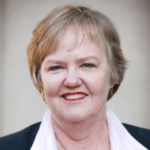World Refugee & Migration Council Vice-President of Research Elizabeth Ferris wrote about the relationship between climate change and human mobility in the Wilson Quarterly. Read the full article here.
“In today’s world where anti-immigrant sentiment is alive and well, where multilateral institutions are weak, where (at least in the U.S.), some reject the evidence that climate change is occurring, and where there is little appetite for creating a new international treaty, we need to consider how to fine-tune the normative frameworks we have. This isn’t as sexy as launching a new convention, but it would bring real benefit to individuals and communities suffering the effects of climate change, who are likely to suffer even more in the future. Shifting the focus from negotiating international agreements to adjusting existing procedures and developing new visa protocols can help those who cross a border as a result of disasters. And supporting mayors and grassroots communities has the potential to bring benefits to the far larger numbers of people moving within the borders of their countries. Civil society groups and networks are already advancing bold ideas for responding to climate-induced migration and need more support.
While it may be more exciting to draft a new international convention rather than call for small changes to existing frameworks, the effects of climate change are causing people to move now. Until the world is ready to take bold action, we need to consider how to use existing policies to meet current on-the-ground human needs.”
Watch the WRMC’s panel discussion on Climate Change and Forced Displacement.

